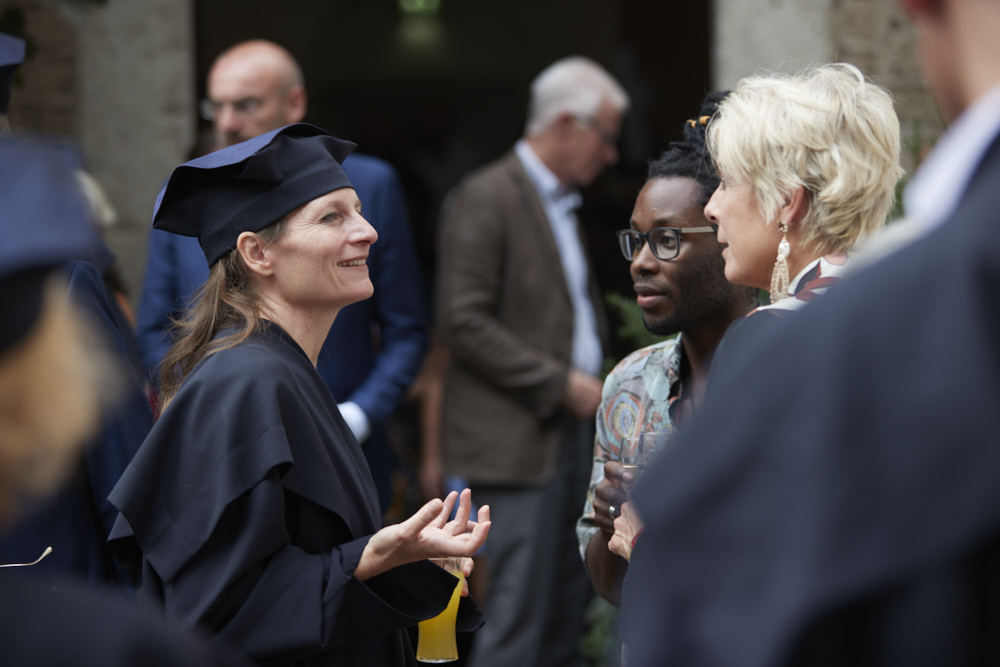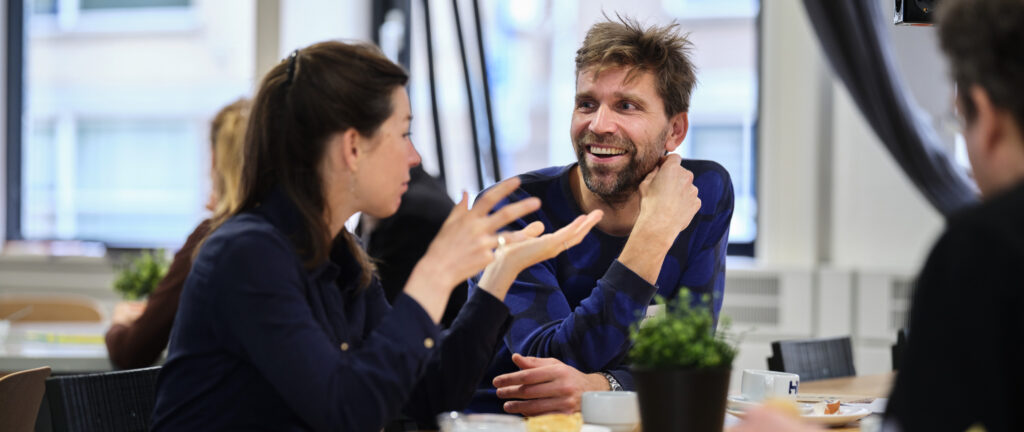About our university
Connecting knowledge
We are the University of Humanistic Studies. Inspired by humanism, we focus on issues that matter, such as social justice, sustainability, and the quest for meaning in a changing society.
We combine knowledge from social sciences and humanities to approach questions from various perspectives. Through research, dialogue, and connection, we contribute to societal issues. We do this close to and engaged with our community.
We critically examine the world around us and create space for new perspectives. In doing so, we give meaning to today’s challenges and contribute to the solutions needed in the world of tomorrow.
A list of stories
Mission and vision
The University of Humanistic Studies contributes to a meaningful life and a just society.
We study issues relating to life and society through the lens of meaning, ethics, and social and ecological responsibility for the world around us. We do this using value-driven science: inspired by humanistic sources and values, we combine knowledge and methods from the social sciences and humanities. In this way, we develop and share knowledge, and educate students and professionals to guide people and organizations in questions about life and living together.
Humanistic Inspiration
The University of Humanistic Studies is inspired by humanism. Humanistic values such as dialogue, self-reflection, inclusion, and connection with society are woven into our education and research. We study the role of humans as part of life on Earth. The scientific discipline of humanistic studies originated from humanism.
History and traditions
The University of Humanistic Studies was founded in 1989. The university originated from a professional higher education program for spiritual counselors. The university has grown into a leading academic knowledge center that focuses on multi-, inter-, and transdisciplinary research, and now offers four officially accredited programmes.
In accordance with academic tradition, we herald the start of a new academic year with the festive Opening of the Academic Year. On January 29, the UvH celebrates its anniversary, the Dies Natalis.
Honorary doctorates
Every five years, during its Dies Natalis celebrations, the University of Humanistic Studies awards honorary doctorates to individuals who have been a source of inspiration for the university’s academic work.




